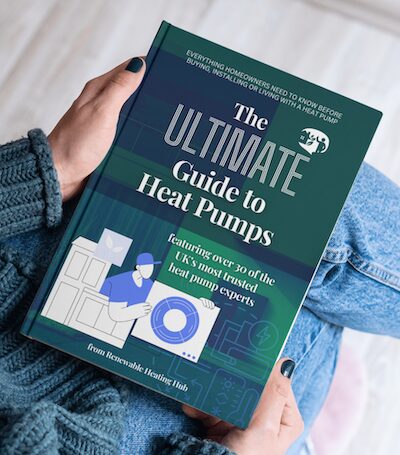Does turning down radiators preserve the heat in the water?
Hi all,
Sometimes - for no reason I can find - the rooms get uncomfortably warm, even though theres no change in outside temperature. My question is: If I turn down the radiator in the room Im currently in, will that preserve the heat in the water so it doesnt have to be heated os much when it goes round the house again? So - in effect - I havnt wasted any energy by turning the radiator down?
Thanks
In my opinion, the water that doesn’t flow through the radiator but wends its’ way along the flow, will be losing a small amount of energy from the surface of the pipework and the rest will be available to the flow input of the next emitter in the line.
One facet of balancing radiators is that when one emitter has its’ flow restricted, this makes more of the energy available to the next emitter and, as a result, more than one round of emitter tweaking is required via the lockshield valves.
As to whether you have ‘wasted’ any heat or energy, most internal pipes within the heated envelope of the house will be emitting some heat and being uninsulated, this contributes towards the overall heating. The emitters will (or should) be ensuring that the energy radiates or convects mainly from them but the pipework will contribute (or leak!) some energy - hopefully in useful areas. The return pipe run water will still have energy and the higher the temperature of this return flow, the less energy will be needed to return it to the desired flow temperature.
The Delta T (often designed to be 5 degrees C) is usually controlled by the heat pump adjusting flow speed and heat pump energy output, so the less energy that is needed, the lower the output needs to be from the pump; lowering flow temperature normally improves efficiency and reflects better COP figures. That’s my pennorth anyway! Regards, Toodles.
Toodles, heats his home with cold draughts and cooks food with magnets.
South facing rooms with large windows can experience high solar gain. Is this the case? Solar gain is one factor that external weather compensated control cannot compensate for. Even in winter, the energy from the sun striking even double glazed windows can transmit high radiant heat energy into the room. Most ASHPs use an external air temperature sensor and control software to regulate heating supply temperature according to outdoor air temperature. If not solar gain, then it could be your heat emitters into the rooms prone to overheating need rebalancing to provide a little less output.
Some systems control heating capacity using indoor room temperature sensing, which is a slightly different method called load compensation, it's quite rare however as a control method, and is better suited to large open plan living single zone open spaces rather than traditional UK homes with multiple rooms.
For rooms with radiators that do get a little warm due to solar gain, TRVs can help, by setting them to a slightly higher temperature than you normally want to room to be, just to prevent it overheating.
- 27 Forums
- 2,495 Topics
- 57.8 K Posts
- 406 Online
- 6,220 Members
Join Us!
Worth Watching
Latest Posts
-

RE: Humidity, or lack thereof... is my heat pump making rooms drier?
Without knowing it, @andrewj, you've laid down the gaun...
By Majordennisbloodnok , 3 minutes ago
-
RE: Testing new controls/monitoring for Midea Clone ASHP
@tasos and @cathoderay thanks. I have some history grap...
By benson , 7 minutes ago
-

I am having my existing heat pump changed to a Vaillant...
By trebor12345 , 40 minutes ago
-
Our Experience installing a heat pump into a Grade 2 Listed stone house
First want to thank everybody who has contributed to th...
By Travellingwave , 1 hour ago
-
RE: Setback savings - fact or fiction?
@cathoderay The input power is largely determined by...
By RobS , 2 hours ago
-

RE: Electricity price predictions
@transparent Im impressed by all your work on this. ...
By JamesPa , 3 hours ago
-

RE: Solis inverters S6-EH1P: pros and cons and battery options
Just to wrap this up here for future readers: The S...
By Batpred , 4 hours ago
-
RE: Struggling to get CoP above 3 with 6 kw Ecodan ASHP
Welcome to the forums.I assume that you're getting the ...
By Sheriff Fatman , 4 hours ago
-

RE: What determines the SOC of a battery?
I agree. Fogstar confirmed that the Seplos BMS does ...
By Batpred , 4 hours ago
-
RE: Say hello and introduce yourself
@editor @kev1964-irl This discussion might be best had ...
By GC61 , 5 hours ago
-

@painter26 — as @jamespa says, it's for filling and re-...
By cathodeRay , 9 hours ago
-

RE: Oversized 10.5kW Grant Aerona Heat Pump on Microbore Pipes and Undersized Rads
@uknick TBH if I were taking the floor up ...
By JamesPa , 20 hours ago
-

RE: Getting ready for export with a BESS
I would have not got it if it was that tight
By Batpred , 22 hours ago
-
RE: Need help maximising COP of 3.5kW Valiant Aerotherm heat pump
@judith thanks Judith. Confirmation appreciated. The ...
By DavidB , 1 day ago
-

RE: Recommended home battery inverters + regulatory matters - help requested
That makes sense. I thought better to comment in this t...
By Batpred , 1 day ago
-
Bosch CS5800i 7kW replacing Greenstar Junior 28i
My heat pump journey began a couple of years ago when I...
By Slartibartfast , 1 day ago
-

RE: How to control DHW with Honeywell EvoHome on Trianco ActiveAir 5 kW ASHP
The last photo is defrost for sure (or cooling, but pre...
By JamesPa , 1 day ago
-

RE: Plug and play solar. Thoughts?
Essentially, this just needed legislation. In Germany t...
By Batpred , 1 day ago
-
RE: A Smarter Smart Controller from Homely?
@toodles Intentional opening of any warranty “can of wo...
By Papahuhu , 1 day ago
-
RE: Safety update; RCBOs supplying inverters or storage batteries
Thanks @transparent Thankyou for your advic...
By Bash , 1 day ago
-
RE: Air source heat pump roll call – what heat pump brand and model do you have?
Forum Handle: Odd_LionManufacturer: SamsungModel: Samsu...
By Odd_Lion , 1 day ago
-
RE: Configuring third party dongle for Ecodan local control
Well, it was mentioned before in the early pos...
By F1p , 2 days ago
-

RE: DIY solar upgrade - Considering adding more panels
I know this is a bit old, but it made me wonder what co...
By Batpred , 2 days ago



